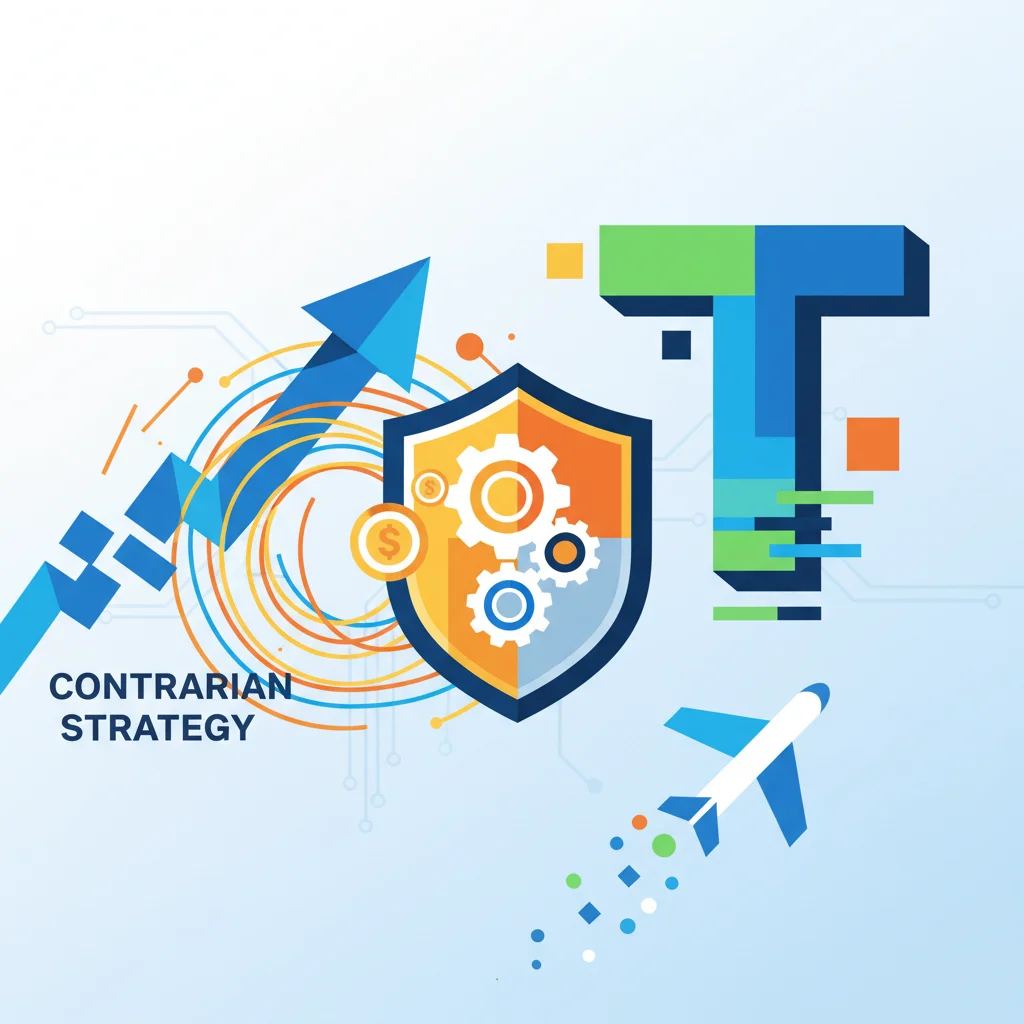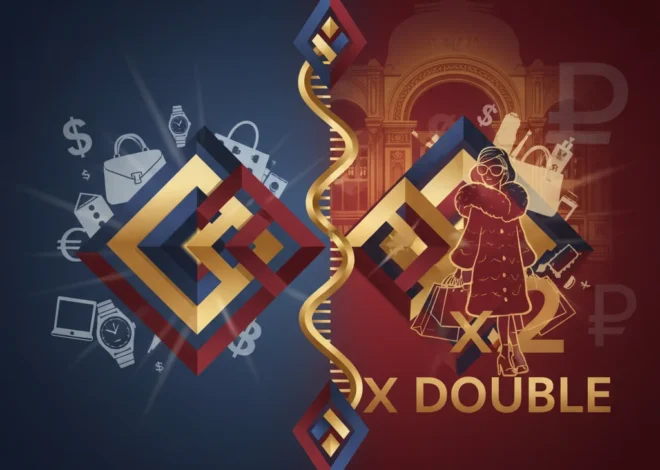
The Ryanair Effect: How Contrarian Strategy and Financial Discipline Built a Stock Market Titan
In the world of business and finance, few companies elicit such a strong, dichotomous reaction as Ryanair. To many travelers, the name is synonymous with cramped seats, relentless upselling, and a litany of fees for services once considered standard. Yet, to investors and students of economics, Ryanair represents a masterclass in operational efficiency, disruptive innovation, and shareholder value creation. The airline has perfected the art of making a virtue out of deeply unpopular ideas, a strategy that has not only propelled it to the top of the European aviation market but also offers profound lessons for leaders across all industries, including the rapidly evolving world of financial technology.
How does a company thrive on a business model that seemingly antagonizes its customer base? The answer lies in a ruthless dedication to a singular mission: being the lowest-cost provider, period. This philosophy, championed by its famously outspoken CEO Michael O’Leary, has transformed the airline industry and provides a compelling case study for anyone interested in investing, business strategy, or the powerful forces of market economics.
Deconstructing the Unpopular Playbook: A Model of Financial Prowess
At its core, Ryanair’s success is not an accident; it’s a meticulously engineered financial model. The strategy is built on two pillars: radical cost reduction and the maximization of ancillary revenue. This “unbundling” of the airline ticket is where Ryanair’s genius—and its controversy—truly lies. While legacy carriers built their brands on service and comfort, Ryanair correctly hypothesized that for a significant portion of the market, price is the only factor that truly matters. Everything else is a potential revenue stream.
This approach has allowed the airline to consistently offer headline fares that are impossible for competitors to match. The psychological pull of a €9.99 flight is immense, drawing customers in before the inevitable addition of fees for seats, bags, and even printing a boarding pass at the airport. According to the original Financial Times report, this model is so effective that it forces the entire industry to adapt. The move to ditch paper passes, for instance, isn’t just a cost-saving measure for Ryanair; it’s a nudge to the wider ecosystem to embrace digital efficiency, a trend we see mirrored in the fintech revolution’s push against traditional banking paperwork.
To understand the mechanics of this model, consider the key strategies that have defined Ryanair’s operational dominance:
| Strategy | Description & Financial Impact |
|---|---|
| Aggressive Unbundling (Ancillary Revenue) | Separating every component of the travel experience (seat selection, baggage, priority boarding, food/drink) into a la carte purchases. This dramatically increases the total revenue per passenger beyond the base ticket price. |
| Fleet Standardization | Operating a single aircraft type (primarily the Boeing 737). This drastically reduces costs related to maintenance, spare parts inventory, and pilot training, creating massive economies of scale. |
| Rapid Airport Turnarounds | Minimizing ground time to as little as 25 minutes. This maximizes aircraft utilization, meaning each plane spends more time in the air generating revenue, a key metric for any capital-intensive business. |
| Secondary Airport Utilization | Flying to less-congested, often regional, airports where landing fees and taxes are significantly lower. This not only cuts costs but also gives Ryanair immense bargaining power with airport authorities. |
| Direct-to-Consumer Digital Model | Over 95% of bookings are made directly through Ryanair’s website, cutting out the commissions paid to travel agents and third-party platforms, a lesson many modern fintech companies have embraced. |
This relentless focus on cost has made Ryanair one of the most profitable airlines in the world, a darling of the stock market for long-term investors who prioritize financial health and market dominance over public perception. The company’s financial statements are a testament to the power of this model, often showing healthier margins than competitors with more premium brands.
Gulliver's Curse: The Perils of Immortality in Modern Finance and Investing
The Digital Mandate: From Boarding Passes to Blockchain
The article’s focus on ditching paper passes is more than just another cost-saving tactic; it’s a window into the future of operations. For Ryanair, forcing a digital-only approach reduces airport staffing needs, speeds up boarding, and eliminates paper and printing costs. But the broader implication for the economy is the acceleration of digital transformation. When a market leader with over 168 million passengers a year makes such a move, it forces a systemic shift.
This is where the conversation intersects with cutting-edge financial technology. The ultimate evolution of a digital boarding pass is a secure, verifiable digital identity. Imagine a future where your identity is stored on a decentralized ledger using blockchain technology. This single, secure digital credential could be used not just for boarding a flight, but for opening a bank account, executing a trade on a trading platform, or passing through customs. It would be faster, more secure, and entirely controlled by the user.
While Ryanair’s motivation is purely economic, it acts as an unintentional catalyst for this kind of innovation. By eliminating legacy systems (paper), it creates a vacuum that technology must fill. This forced adoption can accelerate the development and acceptance of new digital frameworks, which will have ripple effects far beyond aviation, touching everything from banking to government services. The efficiency gains and security enhancements are precisely what the fintech industry has been championing for years.
Lessons for the Modern Investor and Business Leader
For those involved in finance and investing, the Ryanair saga offers several critical takeaways. It is a powerful reminder that the stock market often rewards financial discipline over public affection. While headlines may focus on customer complaints, savvy investors focus on load factors, cost per passenger, and ancillary revenue growth.
1. Focus on the Economic Moat: Ryanair’s moat is its unparalleled cost structure. It has built a business that is incredibly difficult for competitors to replicate. When analyzing a company for a long-term investment, identifying a durable competitive advantage like this is paramount.
2. Understand Consumer Behavior: Ryanair’s success is a lesson in behavioral economics. It demonstrates that for a large segment of consumers, stated preferences (e.g., “I want good service”) are often overruled by revealed preferences (e.g., “I bought the cheapest ticket”). This is a crucial insight for any business setting its pricing strategy.
3. The Power of Saying No: The airline is famous for rejecting anything that adds cost without a corresponding, and significant, revenue opportunity. This includes complex airline alliances, expensive hub-and-spoke systems, and in-flight entertainment. This disciplined approach is a hallmark of excellent capital allocation, a key driver of stock market outperformance. In an era of corporate bloat, Ryanair’s lean philosophy is a powerful counter-narrative.
The airline’s journey has not been without turbulence. It faces constant battles with unions, regulators, and public opinion. The FT article highlights the tightrope Ryanair walks between pushing boundaries and alienating its customer base entirely. Yet, its resilience and continued profitability suggest its model is finely tuned to the realities of the modern economy.
Beyond the Backlash: Why Smart Money is Still Betting on Corporate Diversity
Conclusion: The Uncomfortable Truth About Value
Ryanair is more than just an airline; it is a disruptive force that has fundamentally reshaped an entire industry through an unwavering commitment to a contrarian strategy. The company’s success teaches us an uncomfortable but valuable truth: in a competitive market, operational and financial efficiency are the ultimate arbiters of success. The airline has demonstrated that it’s possible to build a financial fortress not by being loved, but by being undeniably, irrefutably necessary for a large part of the market.
For investors, it’s a case study in looking past the noise to the underlying numbers. For leaders, it’s a lesson in the power of strategic focus and the courage to pursue unpopular ideas. And for the world of finance and fintech, it is a potent example of how unbundling services and embracing a digital-first, low-cost model can topple even the most entrenched incumbents. Love them or hate them, to ignore the lessons of the Ryanair effect is to ignore one of the most compelling business stories of our time.


